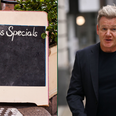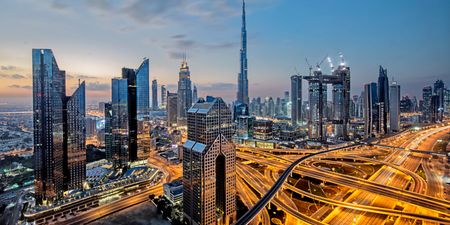The internet nearly killed newspapers. We all know that.
On the one hand, there were the ones that went of business, while on the other there were the ones that relied heavily on the patronage of rich billionaires or groups with other more profitable assets helping to prop them up. The independent titles (no pun intended, Irish readers) who managed to fight back off the strength of sales and digital offerings were few and far between – but even for them, things are about to get a bit more hairy.
Why? Facebook. That’s why.
The term ‘newspaper’ might seem a little off-kilter when you think of Facebook – but that’s exactly what they’re becoming. The only difference is that they have a huge circulation – larger than any in the history of publishing – and complete global control.
Zuckerberg Replaces Murdoch
When you think of media ownership and plurality, people like Rupert Murdoch spring to mind. His cable networks, radio stations, hundreds of newspapers and magazines and digital platforms have decided who gets elected, what we buy and ultimately how many of us think for decades.
But that’s changing.
Social networks have been important for years, but now they’re taking an interest in old media and the media we consume – and time we spend – on those platforms.
To put it in context, let’s look at some of Facebook’s numbers from last night.
- 1.01 billion users visit per day
- Eight billion videos watched per month

Journalism sure can’t be dead given Google Twitter Apple & now Facebook all want to do apps for news 🙂 https://t.co/n77x6tmbPK
— Danny Sullivan (@dannysullivan) November 4, 2015
Instant articles, discovery and moments
The social networks have sucked media companies in with unparalleled distribution – it is, by a long shot, the most efficient and cost-effective way to distribute content to readers. No more men in white vans driving newspapers around the country at 4am; one click, and the story is on the phones, laptops and tablets of those who have signed up.
But over the year we’ve seen a new format start to emerge on each network. Now, editors (people rather than algorithms) are curating the content for end users, pulling together content that’s been produced by a mixture of ‘old media’ and the users themselves.
The content publishers produce is fast becoming a worthless commodity within the social networks
New! Find the best of Twitter in an instant with Moments: https://t.co/QAKGUSVBbT pic.twitter.com/KAjfkysVKC
— Twitter (@Twitter) October 6, 2015
The same thing is happening publishers as happened to the music industry
News orgs pursue their apparent goal of turning over the business to Facebook. https://t.co/oqd60d6NfX
— Dan Gillmor (@dangillmor) November 4, 2015
‘Cable’ TV for millennials
Facebook have their eyes very much focused on the video market as well. If newspapers are in trouble, then so is linear TV and what we think of as cable networks.
There were eight billion videos watched on Facebook in the last month, up from four billion in April. April!
You might laugh and say they’re just 10-second cat videos – and to a large extent, that’s true. But in a year’s time they’ll be music videos, TV shows and possibly even movies.
Millennials don’t sit down in front of a TV and have content handed to them at someone else’s behest; they open Facebook and consume content there, based on their own tastes and interests. And not only are traditional media feeding the Facebook video machine with their content – but they’re also losing ad money to Facebook (again) and making their own video offerings look prehistoric.

And now, the News Notification App
Facebook have found another way to stop you from visiting publishers’ websites directly. It launches next week.
This breaking news app will essentially keep sucking you in to Facebook to view traditional media content. As a result you’ll spend even more time on Facebook, they’ll sell more ads, make more money and traditional publishers will have more money sucked out of their coffers (the split on ads is 70/30).
Facebook will own even more of the news cycle next week
Right now, it has to be pointed out that Facebook aren’t producing any content of their own – that if the publishers cut off the supply of content to them, they’d have nothing left. But because of the publishers’ reliance on Facebook, that quite simply can’t happen.
And more to the point – they’re a cash-rich company who have the expertise, power, money and versatility to create a global news network within mere months.
They have the money?
You betcha.
When Facebook announced its earnings last night, the numbers were spectacular. Of their $4.5bn in revenue, 78% of that came from mobile. That gives them a market cap of over $300bn and makes them the 6th most valuable company in the world.
This means that Facebook have figured out something that most traditional publishers have not… making huge amounts of money from advertising on digital platforms. And crucially, that revenue is accelerating.
Newspapers and traditional media are putting their content into the Facebook feed with the promise of more circulation and exposure – but it’s actually Facebook themselves who are winning by becoming the dominant platform.
$FB–I would hate to work anywhere that competes with $FB after listening to this call
— Jim Cramer (@jimcramer) November 5, 2015
After Facebook’s earnings market cap crosses $300B. Remember thinking Zuck wasnt CEO material because of the hoodie? https://t.co/D3cmGuqfB3
— Dare Obasanjo (@Carnage4Life) November 5, 2015
The Newspaper Of The Future
It’s taken a while for Facebook to work this all out, but they are absolutely nailing it and killing traditional publishers as they do so. Facebook now have…
- News stories
- Photos (Instagram)
- Videos
- Huge distribution
- Comments
- People
Is it sustainable in its current form? No. But it certainly signals a massive shift in the way things are done.
Remember, advertisers don’t pay for content – they pay for attention. Remarkably they’ve managed to suck publishers in to create this for them, signing their own death warrants at the same time.
Topics:
RELATED ARTICLES






MORE FROM Lovin
























MORE FROM Lovin




















